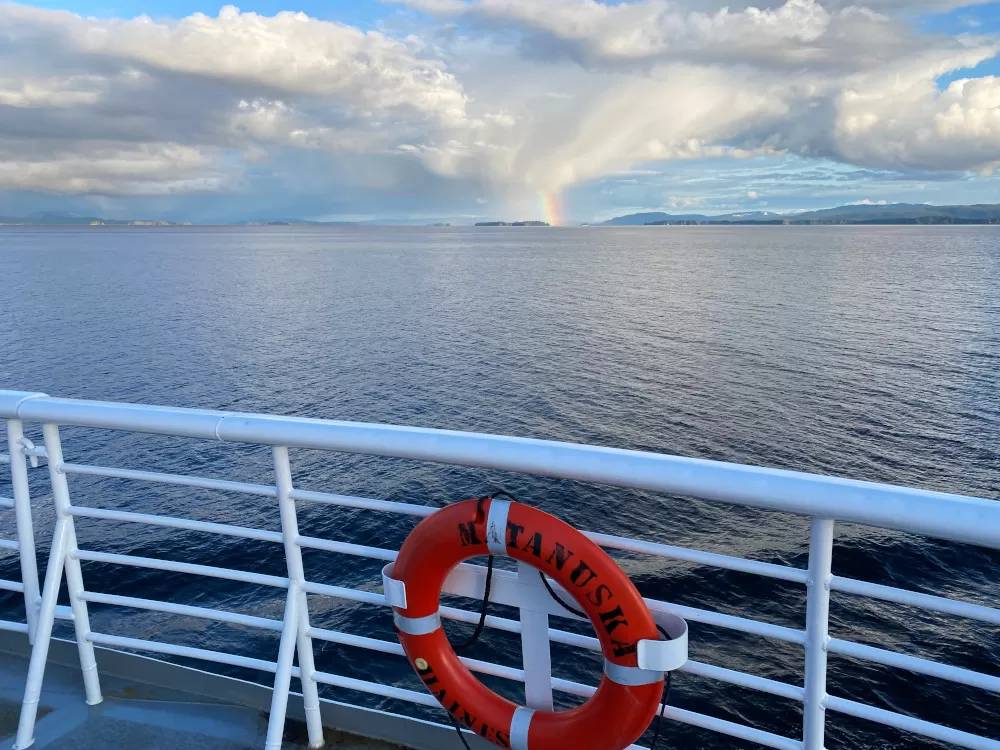
The Alaska Marine Highway Operations Board is scheduled to meet this month to come up with a long-range plan it could recommend to the state Department of Transportation.
The board has been talking about the plan for weeks. At its last meeting August 26, members discussed maintaining year-round service as one of its priorities, replacing old ferries and maintaining a modern fleet.
“I think that part of the long-range plan is that no vessel should ever get above 40 to 50 years old,” said board member, Keith Hillard, captain of the Matanuska ferry. “It gets too cost expensive to maintain.”
Board member, Ed Page, who is a former U.S. Coast Guard captain, said he could support 20 years as a cap. But he said the board might not want to include specific vessel life spans at all in the long-range plan.
“The technology is pretty quickly changing and I’d be surprised if all vessels are operating on diesel fuel in the next 20 years,” Page said. “I think you might be seeing more of this ammonia or some other alternatives or hybrid systems. I doubt not too many vessels are operating the way they are today are operating the same way in 40 years from now.”
Board vice chair Wanetta Ayers of Anchorage said the plan should include an asset maintenance and replacement schedule. She said they can’t predict every problem but the goal should be no unplanned downtime for the vessels.
Ayers said she wanted the long-range plan to be forward thinking and focus on positive ways the Alaska Marine Highway System can improve. She didn’t want to get stuck on past problems, like inconsistent service, even though she said those problems are very real to Alaskans.
“I can tell you that there are a lot of people, a lot of communities who feel that promises have been made with regard to the Alaska Marine Highway System, that they believe those promises have been broken,” said Ayers. “It runs very deep, it runs so deep that to me it’s not productive use of time to just explore those old wounds.”
Besides a long-range plan, the board is also tasked with coming up with more immediate solutions in a short-term plan. Board members agreed that in order to do that, they need to identify their long-range goals first.
Hopefully, it won’t take too long, said Hillard, because there are immediate concerns and the ferry system needs to keep business and revenue coming in.
“The ferry system is in very dire, dire straights right now at the moment and I’m fine with focusing on the long term but it’s to get back to the short term,” he said.
The State DOT plans to put out a proposal to contract a consultant to facilitate a long-range plan. The consultant would organize meetings for that goal and ultimately draw up the plan. The state hopes to have a consultant in place by November, according to officials at the board’s last meeting.
The Alaska Marine Highway Operations Board was created by the Legislature last year and has been meeting ever two weeks since February. It’s made up of nine members from the DOT, the marine highway service, and the public.
The board’s next meeting is scheduled for September 9 but they have not decided if it will be in-person or online.










